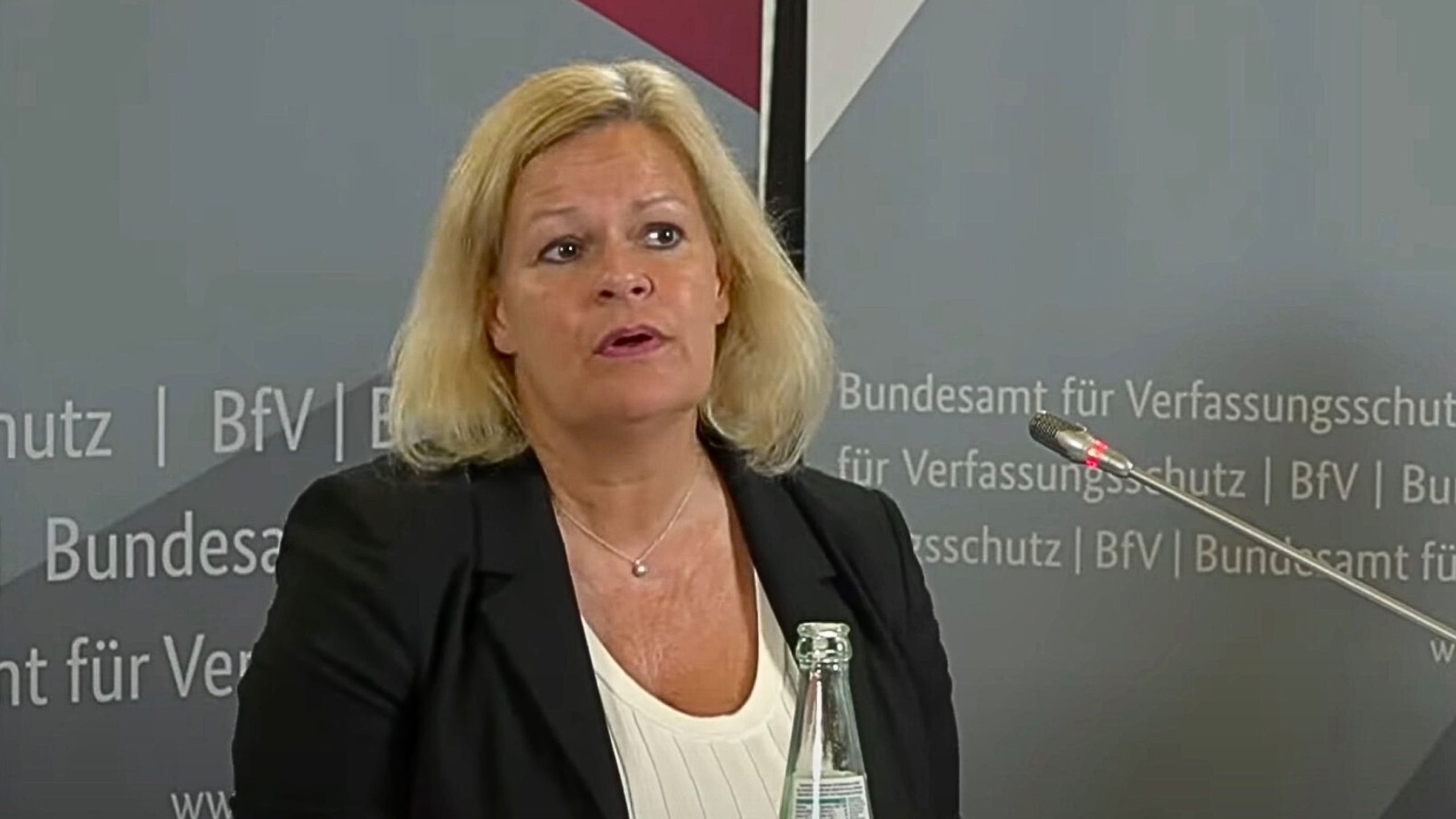Recently a German politician announced a war on right-wing extremism while using phrases as uncomfortable, not only to the German ear, as this – “Those who mock the state (will be confronted by) a strong state.”
That’s exactly the kind of rhetoric Germany’s Federal Interior Minister Nancy Faeser (of the Social Democratic Party, SDP) used when she in July announced the banning of the Compact magazine.
Now, the German Federal Administrative Court has decided that the ban is to be lifted pending the outcome of a lawsuit filed against the decision.
(The magazine’s “overarching crime” here is that it’s sympathetic to the AfD party, and the party’s, that its growing popularity threatens to dislodge the country’s entrenched elites.)
The symbolic “burning of the press” a few months ago featured all but an actual effigy: reports say that the police stormed Compact’s premises, and confiscated everything on site, including furniture, whereas the magazine’s founder Jurgen Elsasser got a knock on his home’s door by “masked special police.”
About a month later, the German Federal Administrative Court decided that the ban was to be lifted until Elsasser’s lawsuit against the Interior Ministry is over, which some observers say could take years.
But international outlets, which have no problem calling Compact “far-right wing,” seem to be hoping this process will take just months (and obviously, have “the preferred” outcome.)
However, that same court sided with Faeser’s legal bypass that made it possible in the first place to start banning politically critical media outlets in a country that considers itself a democracy.
Namely, Faeser ignored freedom of the press provisions from the German Basic Law and instead went for the Law on Associations (“Vereinsrecht”) to go after Compact.
Thus a media outlet suddenly became an “assembly (…) against the constitutional order” – and, job done.
Even the Federal Court agrees, saying that while the ban is temporarily lifted, it was legal of Faeser to use “Vereinsrecht” to achieve her goal.
By the same decision, Compact’s video affiliate ConspectFilm remains banned, while reports say a number of the magazine’s employees had their requests for relief turned down.
Even so, this quintessentially political case is getting even more political, as questions are now being raised over the legitimacy of Faeser continuing to serve as cabinet minister.










